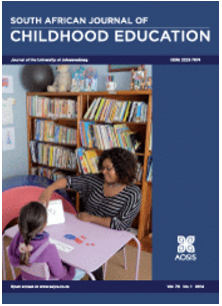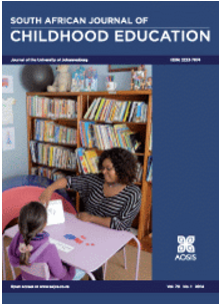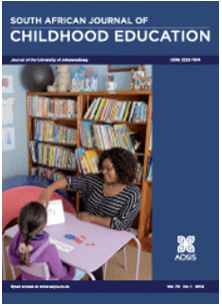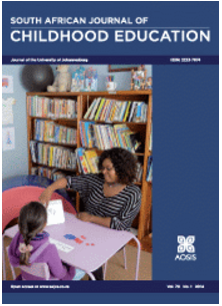South African Journal of Childhood Education 4(1):a55 Masekitlana re-membered : a performance-based ethnography of South African black children’s pretend play
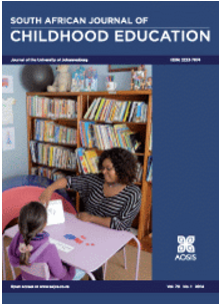
Type
E-Journal
ISSN
2223-7682
Category
ECCE, Foundation, Intermediate, Senior
[ Browse Items ]
Publication Year
2014
Publisher
Aosis OpenJournals, Durbanville, Cape Town, South Africa
URL
[ private ]
Pages
25 p.
Subject
Early childhood education, Primary education, Learners, Masekitlana, Pretend or make-believe play, Performance-ethnography, Adult memories, Vygotsky’s theory of play, Autoethnography, South Africa
Tags
Abstract
The extensive empirical research inspired by Piaget and Vygotsky’s theories of make-believe play has been criticised for restricting data to western, urban, middle-class children. We seek to redress this bias by researching a traditional black South African Pedi children’s game Masekitlana. Our data relies on embodied memories enacted by Mapelo (one of the authors), and interviews of two other informants. The analytical framework draws upon ‘emergent methods’ in ethnography such as performance ethnography, autoethnography and memory elicitation through ‘bodynotes’ within a Vygotskyian orientation to play. The findings show that Masekitlana shares features common to all pretend play, but others unique to it including: i) extended monologue, ii) metacommunicative frames for realistic thinking, and iii) a complex relation between social and solitary play. These findings support Vygotsky. However, ‘the long childhood’ of Masekitlana suggests that the stages theory of Piaget, as well as Vygotskyian ideas that have come down to us via Cole & Scribner and Valsiner, require revision in the light of Bruner’s two modes of cognition, and Veresov’s reinterpretation of the theatre movement, within which Vygotsky’s central ideas are embedded.
Description
Article
Number of Copies
1
| Library | Accession No | Call No | Copy No | Edition | Location | Availability |
|---|---|---|---|---|---|---|
| Main | 652 | 1 | Yes |

